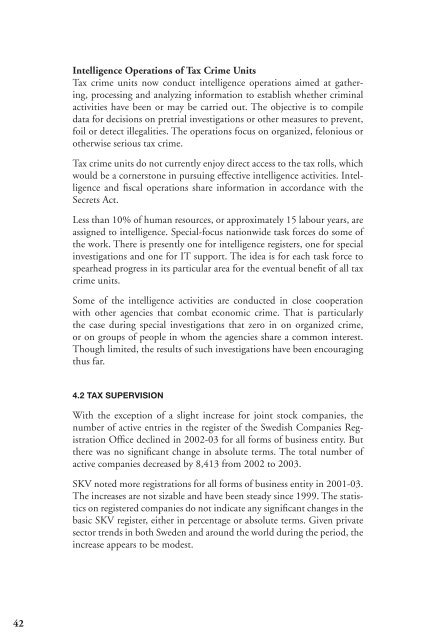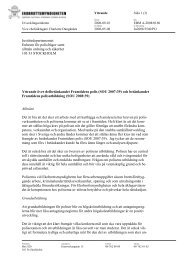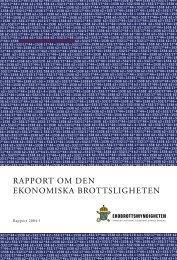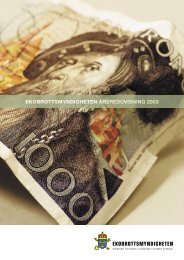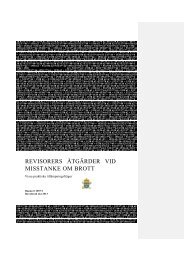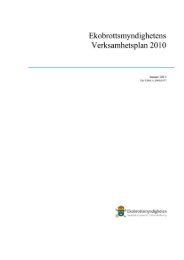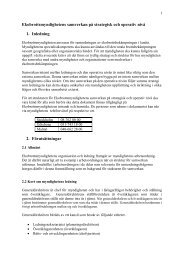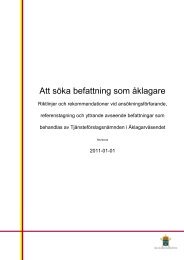Economic crime report 2004 - Ekobrottsmyndigheten
Economic crime report 2004 - Ekobrottsmyndigheten
Economic crime report 2004 - Ekobrottsmyndigheten
Create successful ePaper yourself
Turn your PDF publications into a flip-book with our unique Google optimized e-Paper software.
Intelligence Operations of Tax Crime Units<br />
Tax <strong>crime</strong> units now conduct intelligence operations aimed at gathering,<br />
processing and analyzing information to establish whether criminal<br />
activities have been or may be carried out. The objective is to compile<br />
data for decisions on pretrial investigations or other measures to prevent,<br />
foil or detect illegalities. The operations focus on organized, felonious or<br />
otherwise serious tax <strong>crime</strong>.<br />
Tax <strong>crime</strong> units do not currently enjoy direct access to the tax rolls, which<br />
would be a cornerstone in pursuing effective intelligence activities. Intelligence<br />
and fiscal operations share information in accordance with the<br />
Secrets Act.<br />
Less than 10% of human resources, or approximately 15 labour years, are<br />
assigned to intelligence. Special-focus nationwide task forces do some of<br />
the work. There is presently one for intelligence registers, one for special<br />
investigations and one for IT support. The idea is for each task force to<br />
spearhead progress in its particular area for the eventual benefit of all tax<br />
<strong>crime</strong> units.<br />
Some of the intelligence activities are conducted in close cooperation<br />
with other agencies that combat economic <strong>crime</strong>. That is particularly<br />
the case during special investigations that zero in on organized <strong>crime</strong>,<br />
or on groups of people in whom the agencies share a common interest.<br />
Though limited, the results of such investigations have been encouraging<br />
thus far.<br />
4.2 TAX SUPERVISION<br />
With the exception of a slight increase for joint stock companies, the<br />
number of active entries in the register of the Swedish Companies Registration<br />
Office declined in 2002-03 for all forms of business entity. But<br />
there was no significant change in absolute terms. The total number of<br />
active companies decreased by 8,413 from 2002 to 2003.<br />
SKV noted more registrations for all forms of business entity in 2001-03.<br />
The increases are not sizable and have been steady since 1999. The statistics<br />
on registered companies do not indicate any significant changes in the<br />
basic SKV register, either in percentage or absolute terms. Given private<br />
sector trends in both Sweden and around the world during the period, the<br />
increase appears to be modest.<br />
42


